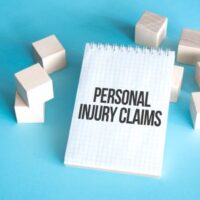Getting Punitive Damages Against a Company

Unlike many other types of damages, punitive damages are intended to punish the Defendant—not just to compensate a victim for losses. In Florida, punitive damages are not easy to get, but they can be awarded, and juries and courts do allow them.
Traditional Punitive Damage Claims
You can generally get punitive damages against a wrongdoer, when the Defendant is more than negligent—that is, the Defendant acts completely carelessly, or with a wanton disregard for all semblance of safety. The victim also must prove this by clear and convincing evidence, a higher evidentiary standard than the typical negligence case.
Holding Employers Liable for Negligence
But sometimes, the person who was wanton, reckless, or completely careless who injured you, did so when he or she was doing his or her job. In that case, the victim can, and should, include the employees’ employer as a Defendant in the case.
Under typical theories of vicarious liability and respondeat superior, an employer is liable for the injuries caused by the employee in the normal course and scope of employment duties.
But what about punitive damages? Can an employer be vicariously liable for punitive damages?
The Florida legislature has said yes, but only in very limited circumstances.
Getting Punitives From the Employer
To show that a Florida company is liable for punitive damages for the actions, errors and omissions of its employee, the victim must show that the employer actively and knowingly participated in the careless behavior of the employee.
The victim almost has to show that the employer had some hand in the behavior, or participated in the carelessness. The employer may have to have condoned the employee’s behavior, or allowed or sanctioned the employees’ careless and negligent behavior.
This can be hard to show; in many instances employees who are careless or who completely disregard safety, do so without an employer’s knowledge, consent or permission.
This is different from ordinary negligence, where the employer can be held liable for what the employee does, even if it had no hand or role in the employee’s negligence. In normal negligence, an employer can know absolutely nothing about the accident or the events that gave rise to negligence, and still be liable.
And this knowledge or cooperation or participation by the employer, needs to be shown by clear and convincing the evidence.
Asking for Punitive Damages
Like any other punitive damage case, the victim can’t just allege punitive damages: it must get permission from the court, after the initial complaint was filed, to add on the punitive damages claim. So, if, through the court of gathering evidence in discovery, the employer’s participation or knowledge in the wanton and reckless behavior cannot be shown by clear and convincing evidence the court will not even allow the punitive damage claim to be made at all.
Could you be entitled to punitive damages following an accident? Contact the Tampa personal injury lawyers at Barbas, Nunez, Sanders, Butler & Hovsepian and schedule a consultation today.
Source:
leg.state.fl.us/statutes/index.cfm?App_mode=Display_Statute&URL=0700-0799/0768/Sections/0768.72.html
